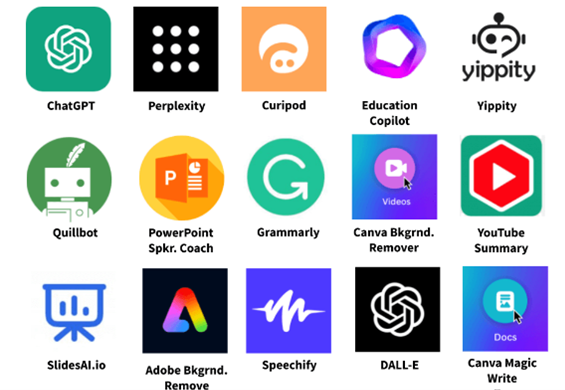Artificial Intelligence (AI) is rapidly becoming a central part of contemporary life and there has been a great deal of commentary about the impact of AI in education. What is not helpful to the debate are headlines such as ‘ChatGPT May Lead To The Downfall Of Education And Critical Thinking’.
As the use of AI in education continues to grow, it’s clear that there needs to be more discussion about how to balance the benefits with the potential risks. One of the most important things for all school communities is to become aware of how AI works, and what it can do and just as importantly cannot do. In secondary settings we believe that AI will enhance engagement and personalise learning experiences. In particular, it will benefit students that require intensive language learning support and help the development of problem-solving skills in all students.
At OLMC we recognise that artificial intelligence (AI) is rapidly changing the way schools engage in teaching, learning and assessment. To provide high-quality curriculum, assessment and reporting services, we are committed to using evidence-led and research-based decision-making practices to respond to the opportunities and implications of AI.
Our response will be developed following a process of discernment, to investigate the potential challenges and opportunities that this emerging technology could bring to the teaching and learning process, while also identifying any risks that could occur when new software is released so quickly. The AI Working Party is working on reviewing the college policies in relation to the use of AI and processes for assessment. We want to ensure that we can continue to uphold academic integrity and rigour across the assessment we have our students undertake in their learning. Fundamentally we will focus on digital literacy, promote academic integrity and examine the implications for assessment.
Finally, at the core of every educational experience is the human relationship between the teacher and the student. This connection goes beyond delivering lessons; it is about understanding a student’s unique strengths, challenges, and emotional landscape. The human connection between teacher and student will always be irreplaceable.
‘As we embrace AI in education, we must remain vigilant in advocating for a pedagogical approach that prioritises human connection and cultural responsiveness. Ultimately, teacher AI literacy should encompass not just the technical skills to integrate AI into classrooms but also the profound understanding of students as whole individuals, fostering an inclusive environment that values each learner’s unique contributions. In this way, we can harness the power of technology while ensuring it complements the irreplaceable art of teaching’. Teachers truly know students and how they learn. Does AI?, Sue Ollerhead, November.18.2024.

https://ditchthattextbook.com/...




